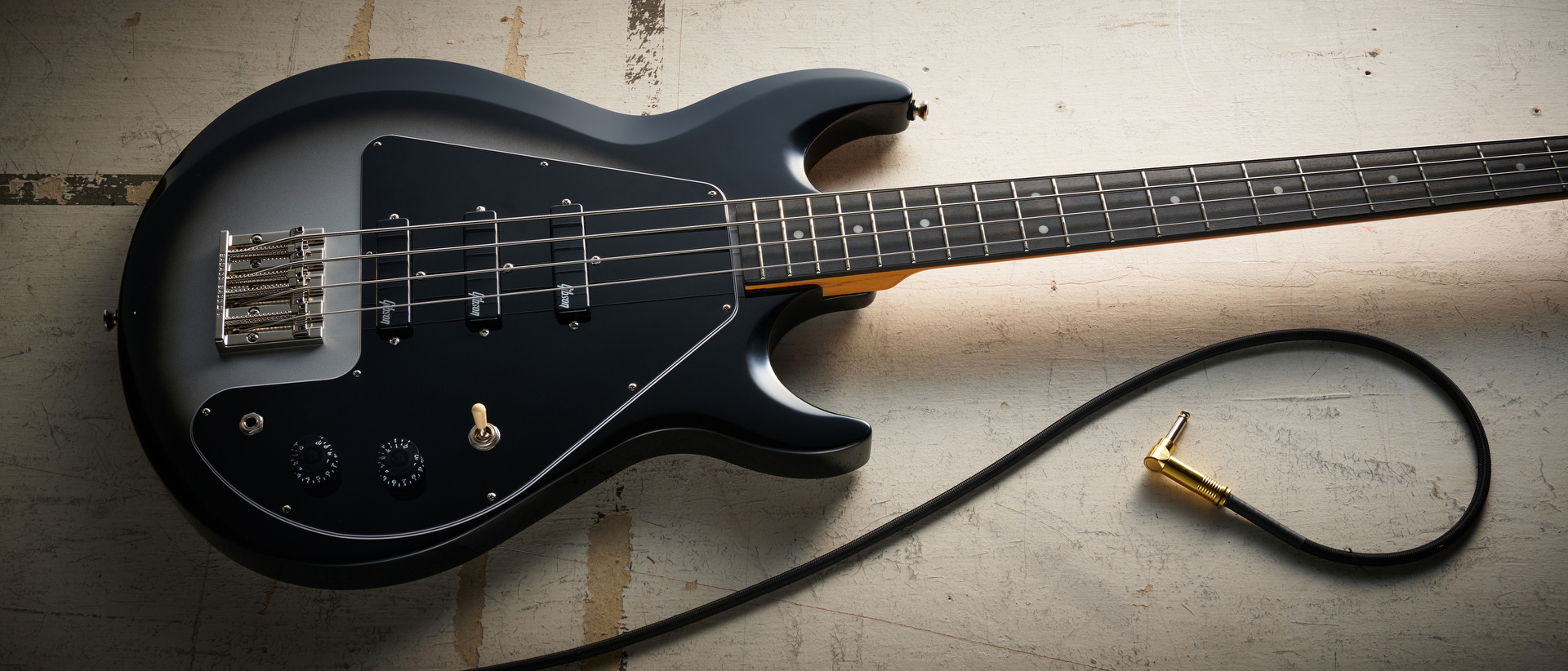Interview: Elliot Easton of The Cars
All the latest guitar news, interviews, lessons, reviews, deals and more, direct to your inbox!
You are now subscribed
Your newsletter sign-up was successful
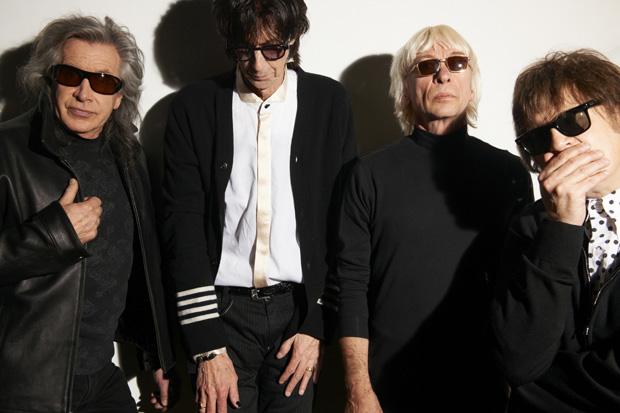
Like a pop-in visit from a gang of friends you met that crazy, hazy summer a long time ago, The Cars recently – and happily – reappeared in our lives.
Although singer/bassist Benjamin Orr died of pancreatic cancer in 2000, the remainder of the band – Ric Ocasek (vocals, rhythm guitar), Elliot Easton (lead guitar), Greg Hawkes (keyboards) and David Robinson (drums) – regrouped, released a new album and reconnected with fans on a quick, 11-city U.S. tour.
The new album, Move Like This, the band's first since 1987's Door To Door, is the perfect Cars calling card. Its 10 tracks recall the band's vintage sound, complete with catchy choruses, feisty beats and old-school synth effects.
Guitar World chatted with lefty guitarist Elliot Easton on the morning of the band's first tour stop in Seattle.
GUITAR WORLD: The music on Move Like This sounds classic and new at the same time, with a lot of the touchstones that make it identifiable as Cars music. In fact, Devo took a similar approach with their 2010 album, Something for Everybody. Were you shooting for the classic Cars sound?
I don't think we really have a choice in the matter. That's how we play together. It's just the sound of the band. But I'd say that from a song and production standpoint, it doesn't really sound like an ’80s record.
What were your main guitars on the sessions?
All the latest guitar news, interviews, lessons, reviews, deals and more, direct to your inbox!
I mostly played my signature model SG. I also played a Fender Custom Shop Nocaster, a Mosrite and a Phantom 12-string from Phantom Guitarworks. And there was a Martin HD-28V and a Custom Shop '66-style Strat with a big headstock, a white one. Also a Gretsch, a prototype, a variation of my Gretsch called the White Tiki. It’s like a White Penguin, only it has “Tiki” on it.
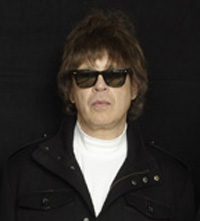
Was that just a one-time deal?
Yes, I have the only one on the planet.
Did you use a lot of the same effects that you used in the ’70s and ’80s?
Not necessarily. We used what was available today, which is what we always did. In that time, we used whatever technology was available, so we do the same now.
What about amps?
We used a lot of smaller amps this time, interestingly. I used a Deluxe Reverb, a Princeton and a hand-wired Vox AC15, a white one with the TV front and the Pentode/Triode switch. It's a great-sounding amp. [Producer] Jackknife Lee also had a Vox AC30 and a Selmer.
We did half the album in upstate New York at Paul Orofino’s studio [Millbrook Sound Studios]. He had everything – a collection of just about every small Fender, Ampeg or Vox amp you could ever want to play through, plus heads and cabinets. So we had a choice of everything for that half of the record. We did half of it in upstate New York and self-produced, and then half in Los Angeles at Village Studios with Jackknife Lee.
How does your touring setup differ from the gear you used on the album?
It's just 11 dates of major cities, so I didn’t want to get too elaborate. I’ve got two of my signature SGs: a Pelham Blue one and a white one, and a Custom Shop Telecaster with a Jazzmaster neck pickup. It’s a really pretty guitar. I’m also using a '56 Strat. Depending on what songs we were gonna do, I brought a 12-string and some other things, but it doesn't look like I'm going to be using those, so that's basically the heart of it. Again, for 11 shows, I didn’t see taking 10 guitars out and going too nuts.
I couldn’t help but notice there aren’t too many guitar solos on Move Like This. Why's that?
I don't know that it was necessarily my decision that the record doesn't have a lot of solos. The songs were written before we decided we were going to make a Cars record out of them. I think a lot of the music Ric had been listening to, and stuff he was being inspired by, didn’t have a lot of solos. The stuff he wrote was just more streamlined.
At first I thought it was a little weird, because the old Cars records all have lots of guitar solos. It's a very enjoyable part of being in the band for me – just those little eight or 12 or 16 bars where I can kind of create something for myself. Not for myself, but that comes from myself. You know, it was very important to me. So it was a little odd, but eventually I just accepted the fact that this was a different kind of record and that we were trying to do something a little different.
And you know, it's not like the most important thing in the world. The songs are what matter. There's one solo on it. I was laughing; I was talking to a friend, saying, “You know, Sgt. Pepper's Lonely Heart's Club Band has two guitar solos on it, and they're both by Paul McCartney.”
So I eventually understood the kind of record Ric was envisioning, and I enjoyed making it; it was a very enjoyable process. Maybe the next one will have some more guitar solos. Who knows?
NOTE: There's more to this interview! Click on the red "NEXT" button below the photo gallery that's right below this sentence.
Has anyone mentioned recording a follow-up to Move Like This?
Well, not in specific terms. Just along the lines of, this one was very enjoyable to make, so why wouldn't we make another? That kind of thing.
Reaching back a bit, was it difficult for you to find lefty guitars in the ’70s?
When we were starting out, I didn’t really have much money. I could afford one or two guitars, and I usually would go up to 48th Street in New York City and get some standard model they'd stock. Later on, I was able to get things custom-built for me, but early on it was a little difficult. When you went to New York, they had such a big inventory that they just usually had a couple of lefty Strats or lefty Les Pauls for you to try. I always managed to find something.
Given your association with Gretsch and some of your guitar solos on the old Cars records, one senses an affinity for rockabilly. True?
I'd say so, yeah. I love rockabilly, as well as Bakersfield country and chicken picking, plus James Burton and all those great Telecaster players.
Maybe a little Paul Burlison?
Yeah, all that kind of stuff – Cliff Gallop, Eddie Cochran. Brian Setzer’s fantastic. It comes through a little bit, obviously, on “My Best Friend’s Girl,” but I love that kind of music. I love real rock ’n’ roll. That’s the real stuff.
One Guitar World reader said his guitar teacher once asked him to find a wrong guitar note on a Cars record, and he couldn’t do it. So kudos to you!
Thank you so much! That’s one of the nicest compliments you can get. I appreciate that. What are your thoughts on Gaskell guitars?They’re an Australian company that makes left-handed guitars at a budget price. I’d say they’re very, very nice guitars for the money.How involved were you in the design of the Gretsch Elliot Easton Jet?I was very involved. To the eye, it just looked like a normal Gretsch Duo Jet, but I did a lot of things to it to change the geometry of it. I lengthened the scale half an inch, and I took the bridge off a wooden base and put it on studs like a Les Paul. I used a Bigsby B7 so the strings would go under the bar on the way to the bridge so there'd be more tension on the strings. I changed what people call the “mud switch,” you know, the tone switch on a Gretsch, using a different selection of capacitors. We found some more usable sounds. I just tried to do all the mods people would do to a Gretsch to make it sturdy and solid, so you can tour with them. They’re great guitars. I really enjoyed my affiliation with those people and still maintain friendships over there.Finally, what are your thoughts on TV Jones pickups?Most of my Gretsches have TV Jones pickups in them. I love Tom. It's almost a matter of, when I get a guitar, I get TV Jones pickups and put them in. They sound great.
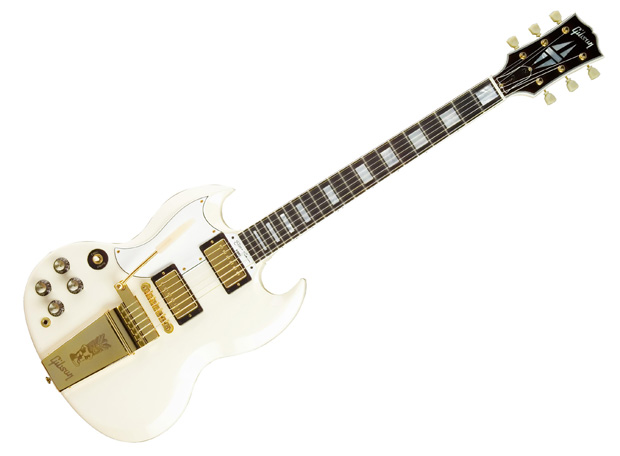
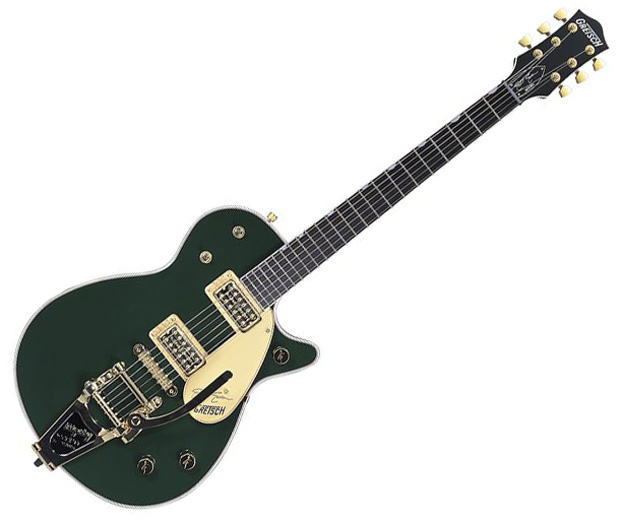
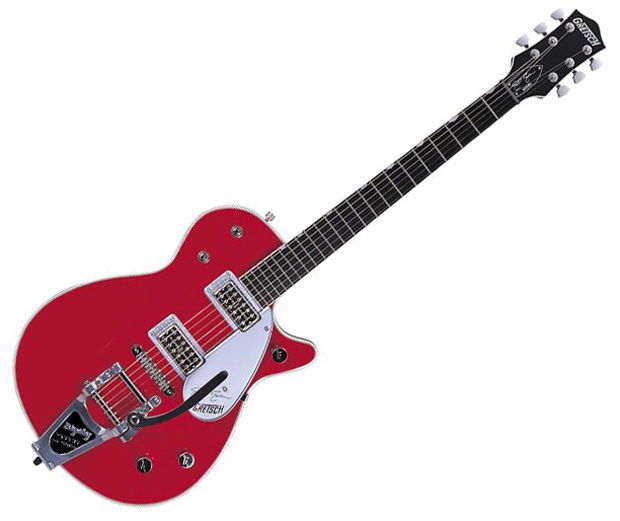

Damian is Editor-in-Chief of Guitar World magazine. In past lives, he was GW’s managing editor and online managing editor. He's written liner notes for major-label releases, including Stevie Ray Vaughan's 'The Complete Epic Recordings Collection' (Sony Legacy) and has interviewed everyone from Yngwie Malmsteen to Kevin Bacon (with a few memorable Eric Clapton chats thrown into the mix). Damian, a former member of Brooklyn's The Gas House Gorillas, was the sole guitarist in Mister Neutron, a trio that toured the U.S. and released three albums. He now plays in two NYC-area bands.
